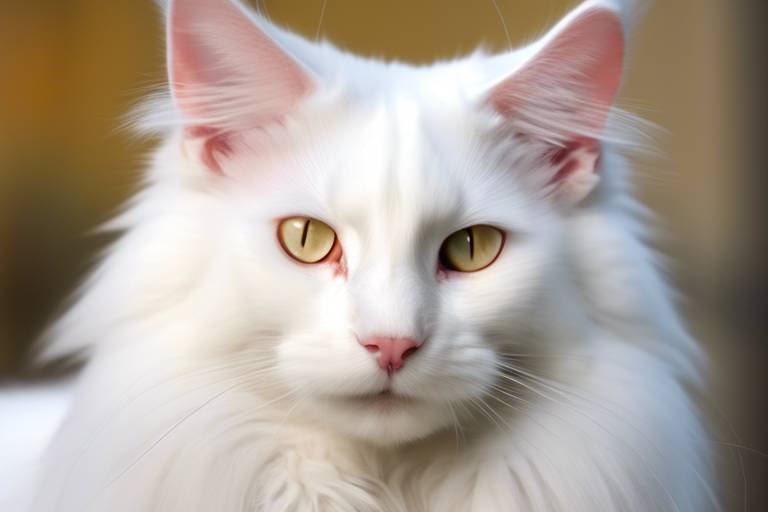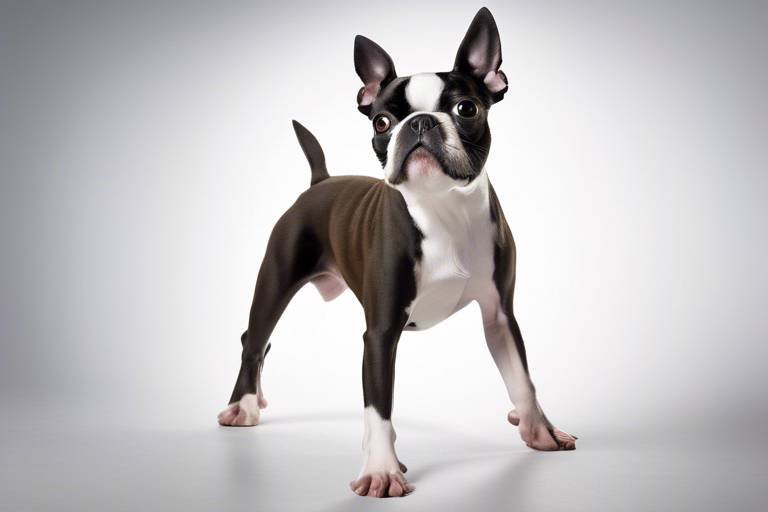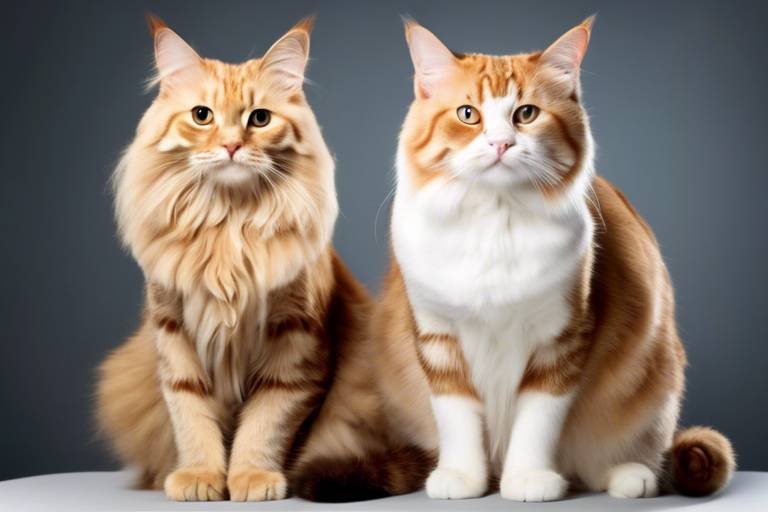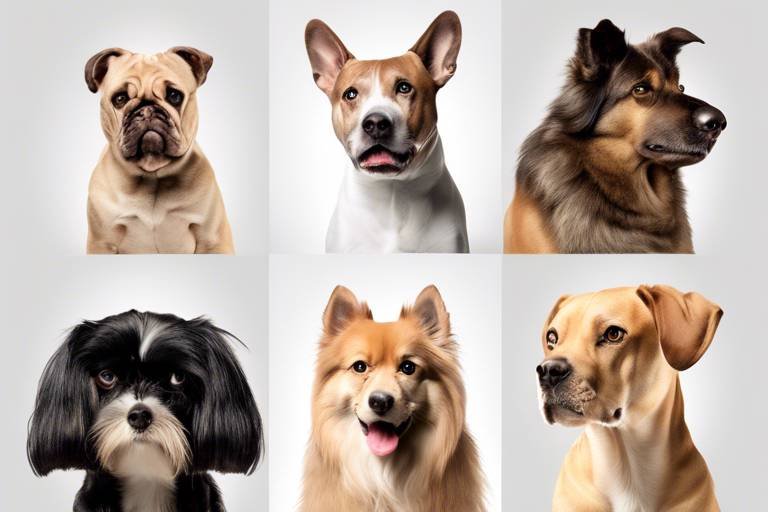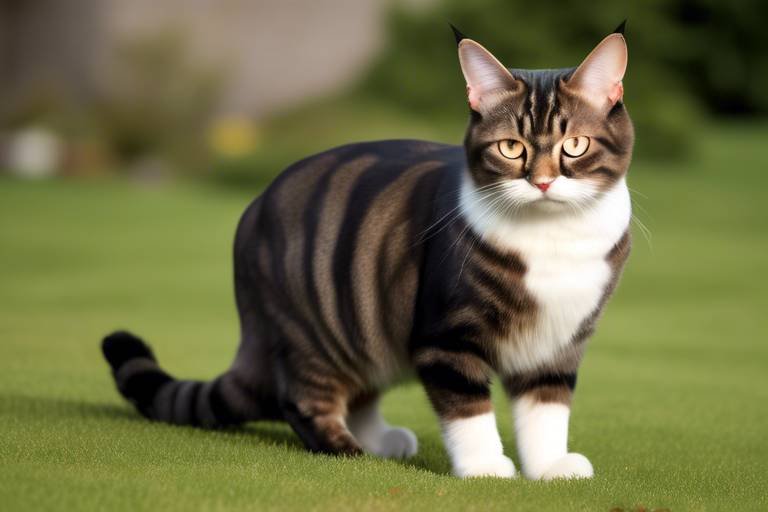The Unique Features of the Neapolitan Mastiff
The Neapolitan Mastiff, often simply referred to as the "Neo," is a breed that captures attention with its **imposing stature** and **distinctive features**. Originating from Italy, this breed is not just another large dog; it embodies a rich history and a unique personality that makes it a fascinating companion. With their **loose, wrinkled skin**, **massive heads**, and **muscular builds**, Neapolitan Mastiffs stand out in any crowd. Their appearance alone can evoke a sense of awe, but there’s so much more to them than just looks. In this article, we’ll explore the various characteristics that make the Neapolitan Mastiff a remarkable breed.
One of the most striking physical traits of the Neapolitan Mastiff is its **loose skin**, which seems to hang dramatically from their bodies. This feature not only adds to their regal appearance but also serves a practical purpose: it provides an extra layer of protection during fights, a trait that harkens back to their historical use as guard dogs. Their **large heads** are another defining characteristic, often described as **broad and powerful**, housing a strong jaw that can deliver a formidable bite if necessary. This breed's **muscular build** complements its size, giving it a robust and sturdy presence that is both intimidating and impressive.
When it comes to temperament, the Neapolitan Mastiff is known for its **loyalty** and **protective nature**. These dogs are often incredibly devoted to their families, forming strong bonds with their owners and being particularly affectionate with children. However, their protective instincts mean that they can be wary of strangers, making early socialization essential to ensure they develop into well-rounded companions. This breed's temperament can be a double-edged sword; while they are gentle giants at home, they can be formidable guardians when the situation calls for it.
In terms of health considerations, potential owners should be aware that the Neapolitan Mastiff is prone to certain health issues. **Common conditions** include hip dysplasia, skin problems, and heart issues. Regular veterinary check-ups and a keen eye for any signs of discomfort can help in managing their health effectively. It's important for owners to be proactive about their dog's well-being, ensuring they maintain a healthy lifestyle through proper diet and exercise.
Caring for a Neapolitan Mastiff is a commitment, but the rewards of their companionship are immeasurable. From grooming to exercise needs, understanding how to care for this breed is crucial. Despite their size, Neapolitan Mastiffs have moderate exercise requirements, making them suitable for various living situations. Regular walks and playtime are essential to keep them physically fit without overexertion, ensuring they remain healthy and happy.
In summary, the Neapolitan Mastiff is a breed that combines **unique physical characteristics** with a **rich personality**. Their impressive size, loyal nature, and protective instincts make them wonderful companions for those who understand their needs. If you're considering adding one of these magnificent dogs to your family, it's essential to appreciate the commitment involved but also the joy they bring into your life.
- What is the average lifespan of a Neapolitan Mastiff? The average lifespan is around 8 to 10 years.
- Do Neapolitan Mastiffs require a lot of exercise? They have moderate exercise needs, so daily walks and playtime are sufficient.
- Are they good with children? Yes, they are typically very gentle and protective of children.
- How much grooming do they need? Regular grooming is important due to their loose skin and tendency to shed.
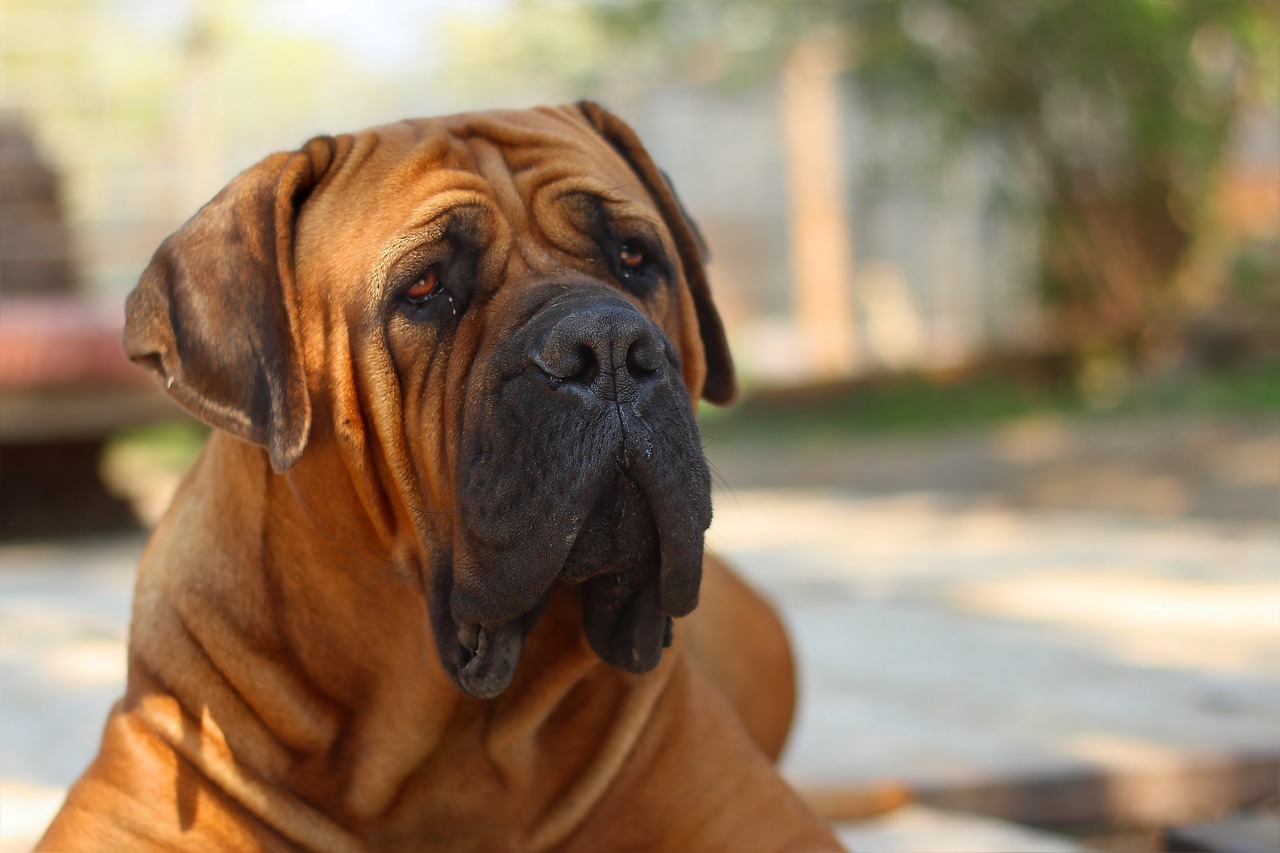
Physical Characteristics
The Neapolitan Mastiff is a breed that commands attention, not just because of its size but also due to its unique physical traits. Imagine a dog that looks like a gentle giant; that's the Neapolitan Mastiff for you! With a weight that can range from 110 to 150 pounds, these dogs are not just big—they're massive. Their broad, muscular bodies are supported by strong legs, giving them a powerful stance that exudes both strength and grace.
One of the most striking features of the Neapolitan Mastiff is its loose skin. This characteristic not only adds to their unique appearance but also serves a purpose. The loose skin acts as a protective layer, absorbing impacts during play or a potential scuffle. When you look at a Neapolitan Mastiff, you can’t help but notice its large head, which is often adorned with deep-set, expressive eyes that seem to convey a sense of wisdom and loyalty.
Furthermore, their wrinkled face gives them an almost regal appearance. Each wrinkle tells a story, adding to their charm and character. The skin folds around their face and neck can trap moisture and dirt, so it's essential for owners to keep these areas clean to prevent skin issues. The coat itself is short and dense, typically found in a variety of colors including brindle, black, and tawny. While they don’t require excessive grooming, regular brushing helps manage shedding and keeps their coat healthy.
In terms of size, the Neapolitan Mastiff stands about 24 to 30 inches tall at the shoulder, making them one of the larger breeds out there. Their broad chest and strong back are complemented by a thick neck, which adds to their imposing presence. When you see one in person, it's hard not to feel a mix of admiration and respect. They truly embody the phrase "gentle giant." However, despite their intimidating size, these dogs are known for their calm demeanor, making them surprisingly gentle and affectionate companions.
To summarize, the Neapolitan Mastiff's physical characteristics can be outlined as follows:
| Feature | Description |
|---|---|
| Weight | 110 to 150 pounds |
| Height | 24 to 30 inches |
| Coat | Short and dense, variety of colors |
| Skin | Loose, with prominent wrinkles |
Overall, the Neapolitan Mastiff is a breed that not only stands out visually but also possesses a unique set of traits that make them a fascinating addition to any family. Their impressive size, combined with their gentle nature, creates a breed that is both awe-inspiring and endearing.
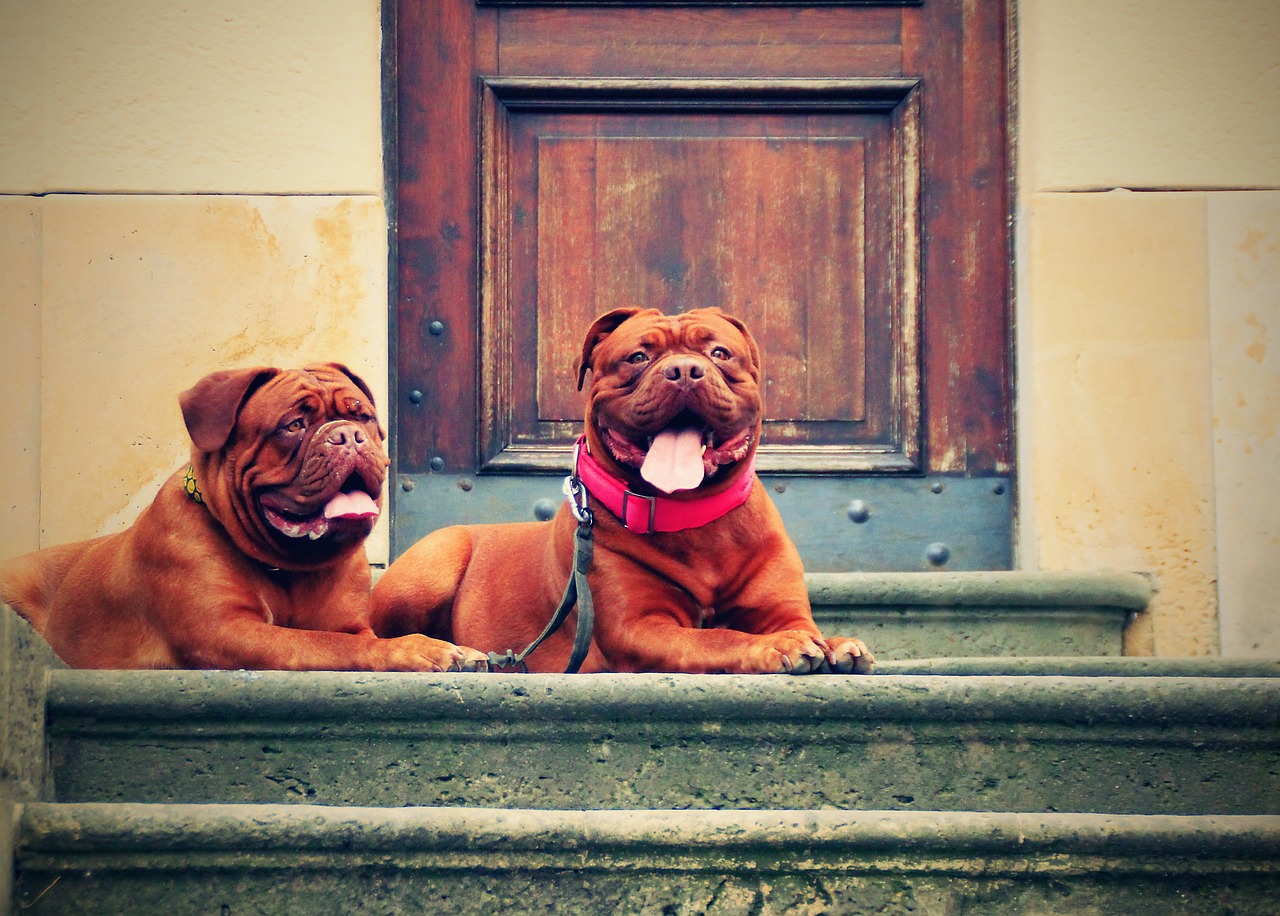
Temperament and Behavior
The Neapolitan Mastiff is not just a giant in size but also in personality. These dogs possess a unique blend of traits that make them both fascinating and endearing. One of their most notable characteristics is their protective nature. They are fiercely loyal to their families, often forming strong bonds with their owners. This loyalty translates into a natural instinct to guard their home and loved ones. Imagine having a gentle giant by your side, always ready to spring into action at the first sign of trouble!
Despite their imposing stature, Neapolitan Mastiffs are known for their gentle demeanor. They can be surprisingly affectionate, often displaying a calm and loving attitude towards their family members. This breed is generally good with children, making them a great addition to families. However, their size and strength mean that supervision is always necessary, especially during playtime. It’s essential to teach children how to interact respectfully with these large dogs to foster a safe and enjoyable environment for everyone.
Socialization is critical for the Neapolitan Mastiff. Without proper exposure to different people, animals, and environments, their protective instincts can sometimes lead them to be overly wary or even aggressive. Early socialization helps them become well-rounded companions, so it’s important to introduce them to various experiences as puppies. This can include trips to the park, meeting new people, and interacting with other pets. The goal is to help them understand that not everything is a threat, allowing their gentle nature to shine through.
When it comes to socialization, the earlier, the better! Here are some effective methods to ensure your Neapolitan Mastiff grows up to be a friendly and well-adjusted dog:
- Expose them to different environments: Take your puppy to various places, such as busy streets, pet-friendly stores, and parks.
- Meet other dogs: Arrange playdates with other dogs to help them learn proper canine etiquette.
- Introduce new people: Encourage friends and family to visit and interact with your puppy.
By providing these experiences, you can help your Neapolitan Mastiff develop a balanced temperament, making them more adaptable and less likely to react negatively in unfamiliar situations.
Training is another crucial aspect of raising a Neapolitan Mastiff. Their large size can make them a handful if not properly trained. Start with basic commands like "sit," "stay," and "come." Positive reinforcement techniques, such as treats and praise, work wonders with this breed. Remember, consistency is key! The more you practice, the better your dog will understand what you expect from them.
When it comes to kids, Neapolitan Mastiffs can be incredibly patient and gentle. However, it’s vital to teach children how to approach and play with them. Here are some tips to ensure positive interactions:
- Supervise playtime: Always keep an eye on interactions between your dog and young children.
- Teach gentle play: Encourage kids to use soft voices and avoid roughhousing.
- Provide a safe space: Make sure your dog has a quiet area to retreat to if they feel overwhelmed.
By fostering a respectful relationship between your Neapolitan Mastiff and children, you can create a harmonious household where everyone feels safe and happy.
Like all breeds, the Neapolitan Mastiff is prone to certain health issues. Being aware of these can help you monitor your dog's health effectively. Some common conditions include hip dysplasia, skin problems, and heart issues. Regular veterinary check-ups and maintaining a healthy diet can help mitigate these risks. Always keep an eye on their weight, as obesity can exacerbate many health problems.
Here are some common questions potential owners might have about the Neapolitan Mastiff:
- Are Neapolitan Mastiffs good with other pets? With proper socialization, they can get along well with other animals, but early exposure is key.
- How much exercise do they need? They require moderate exercise; daily walks and playtime are usually sufficient.
- Is grooming difficult? Their grooming needs are moderate, but regular brushing helps manage shedding and skin health.
Socialization Needs
When it comes to the Neapolitan Mastiff, understanding their socialization needs is not just important; it's essential. This breed, known for its impressive size and protective nature, can be a gentle giant or an overly cautious guardian, depending on how well they are socialized. Think of socialization as the foundation of a house; without it, everything else can crumble. Starting this process early can help shape a well-adjusted dog that is comfortable around people, other pets, and various environments.
One of the best ways to socialize a Neapolitan Mastiff is through exposure. Introduce them to different settings, sounds, and sights. For example, taking your pup to parks, pet-friendly stores, or even bustling streets can help them adapt to new experiences. Remember, the goal is to make these experiences positive. You can achieve this by rewarding your dog with treats or praise whenever they encounter something new without fear. This positive reinforcement builds their confidence and encourages them to embrace new situations.
Another effective method involves puppy classes. Enrolling your Neapolitan Mastiff in a training class not only provides essential obedience training but also offers a controlled environment for socialization. In these classes, your dog will meet other dogs and people, allowing them to learn proper behavior through interaction. It's like sending your child to school; it helps them learn social cues and how to interact with others. Plus, it strengthens the bond between you and your pup as you work together in training.
As they grow, it's crucial to continue exposing them to various situations. Regular playdates with other dogs can be beneficial, as can trips to the dog park. However, always supervise these interactions to ensure they remain positive. If you notice any signs of aggression or fear, it's essential to address these behaviors promptly. Consulting a professional trainer can provide strategies tailored to your dog's specific needs.
In summary, socialization is a vital aspect of raising a well-rounded Neapolitan Mastiff. By providing diverse experiences, enrolling in training classes, and facilitating safe interactions with other dogs, you can help your furry friend develop into a confident and well-adjusted companion. Just remember, the earlier you start this process, the better equipped your dog will be to handle the world around them.
- How early should I start socializing my Neapolitan Mastiff?
It's best to begin socialization as early as possible, ideally during the puppy stage, which is between 3 to 14 weeks old. - What are some signs that my Neapolitan Mastiff is not well-socialized?
Signs may include excessive barking, aggression towards other dogs or people, or fearfulness in new situations. - Can adult Neapolitan Mastiffs be socialized?
Yes, while it may take more time and patience, adult dogs can still learn to adapt and become socialized. - How can I help my Neapolitan Mastiff feel more comfortable around strangers?
Gradual exposure to new people, rewarding calm behavior, and allowing them to approach at their own pace can help.
Early Training
When it comes to the Neapolitan Mastiff, early training is not just a good idea; it's absolutely essential. Imagine trying to navigate a ship through stormy seas without a compass—this is akin to raising a Neapolitan Mastiff without proper training. These gentle giants, with their impressive size and strength, require a firm yet loving hand to guide them. Starting training at a young age helps to establish boundaries and ensures that your pup grows into a well-mannered adult.
One of the first steps in early training is socialization. Exposing your Neapolitan Mastiff to various environments, people, and other animals can significantly influence their behavior. Think of it as introducing them to a buffet of experiences; the more they sample, the more well-rounded they become. Aim to expose them to different sights, sounds, and smells, which will help them adapt to new situations with confidence. This can include taking them to parks, pet-friendly stores, and even inviting friends over to interact with your pup.
In terms of training techniques, positive reinforcement works wonders with this breed. They respond best to praise, treats, and affection when they exhibit desirable behaviors. For instance, when your Mastiff sits on command, shower them with praise and a tasty treat. This not only encourages them to repeat the behavior but also strengthens the bond between you and your furry friend. Remember, consistency is key! Establish a routine and stick to it, as this will help your dog understand what is expected of them.
Additionally, enrolling your Neapolitan Mastiff in a puppy training class can be beneficial. These classes provide a structured environment where your pup can learn basic commands and socialize with other dogs. It's a win-win situation: your dog gets to learn, and you get to meet other dog owners who can share tips and experiences. Just like how children thrive in school, your Mastiff will flourish in a training class that fosters learning through play and interaction.
Lastly, patience is a virtue when it comes to training your Neapolitan Mastiff. These dogs might not be the quickest learners, but with time and perseverance, they will come to understand what you’re teaching them. Remember, every dog is unique, and while some may catch on quickly, others may take a bit longer. Embrace the journey and celebrate the small victories along the way. After all, training your Neapolitan Mastiff is not just about obedience; it’s about building a lifelong relationship filled with trust and love.
Interaction with Children
When it comes to the Neapolitan Mastiff, one of the most heartwarming aspects of their personality is their interaction with children. These gentle giants, despite their imposing size, have a remarkably affectionate and protective nature that makes them excellent companions for kids. Imagine a giant, fluffy teddy bear that not only loves to cuddle but also keeps a watchful eye on your little ones. That's the Neapolitan Mastiff for you!
However, fostering positive interactions between your Neapolitan Mastiff and children is crucial. It's essential to teach both the dog and the kids how to behave around each other. For instance, children should learn to approach the dog calmly and respectfully, avoiding sudden movements that might startle the Mastiff. On the other hand, the Mastiff should be socialized properly from a young age to ensure they are comfortable around children. This mutual understanding is key to creating a peaceful and loving environment.
To ensure safe and enjoyable interactions, consider the following tips:
- Supervision: Always supervise playtime between your Neapolitan Mastiff and children, especially when they are young. This helps prevent any accidental roughhousing that could lead to injury.
- Teach Boundaries: Both the dog and the kids should have clear boundaries. It's important to teach children not to pull on the dog's ears or tail, and to respect the dog's space.
- Positive Reinforcement: Reward your Mastiff for calm behavior around children. This can help reinforce their gentle nature and create a more harmonious household.
One of the most delightful sights is seeing a Neapolitan Mastiff playing gently with children, rolling around in the grass, or even just lounging while the kids read stories to them. Their patient demeanor makes them fantastic listeners and companions. However, it’s important to remember that while they are generally good with children, every dog is an individual. Some may be more tolerant than others, so always pay attention to your dog's body language and comfort level.
In conclusion, the Neapolitan Mastiff can be a wonderful addition to a family with children, provided that both the dog and the kids are taught how to interact appropriately. With the right guidance and supervision, these dogs can form lifelong bonds with their young human companions, creating a loving and protective atmosphere that benefits everyone in the household.
- Are Neapolitan Mastiffs good with young children? Yes, they can be very gentle and protective, making them great companions for kids when properly socialized.
- How should I introduce my Neapolitan Mastiff to my children? Introduce them slowly and supervise their interactions to ensure both the dog and children feel safe and comfortable.
- What should I do if my Neapolitan Mastiff shows aggression towards children? It's crucial to consult a professional trainer or behaviorist to address any aggressive behavior immediately.
Common Health Issues
The Neapolitan Mastiff, with its impressive stature and unique features, is not only a sight to behold but also a breed that comes with its share of health concerns. Understanding these common health issues is crucial for any potential owner, as it allows you to be proactive in ensuring your furry friend lives a long and healthy life. One of the primary concerns is hip dysplasia, a genetic condition that affects the hip joint's development, leading to arthritis and pain. This is particularly common in large breeds, and regular veterinary check-ups can help in early detection.
Another issue that Neapolitan Mastiffs are prone to is gastric torsion, also known as bloat. This dangerous condition occurs when the stomach fills with gas and twists, cutting off blood flow and potentially leading to death if not treated immediately. Signs of bloat include restlessness, drooling, and a distended abdomen. It's essential to feed them smaller, more frequent meals to help mitigate this risk.
Additionally, due to their abundant loose skin, Neapolitan Mastiffs can suffer from skin infections. The folds of skin can trap moisture and dirt, creating a perfect breeding ground for bacteria. Regular cleaning of these folds is necessary to prevent infections. It's also important to keep an eye out for any signs of eye problems, such as entropion, where the eyelids roll inward, causing irritation and potential damage to the eye.
To summarize, here are some common health issues to be aware of:
- Hip Dysplasia
- Gastric Torsion (Bloat)
- Skin Infections
- Eye Problems (Entropion)
Being informed about these potential health issues can help you provide the best care for your Neapolitan Mastiff. Regular vet visits, a balanced diet, and proper exercise can go a long way in preventing or managing these conditions. Always remember, being a responsible pet owner means being proactive about your dog's health!
As you consider bringing a Neapolitan Mastiff into your home, you might have some questions. Here are some of the most frequently asked questions about this magnificent breed:
- What is the average lifespan of a Neapolitan Mastiff?
The average lifespan is typically around 8 to 10 years. - Are Neapolitan Mastiffs good with children?
Yes, they are known to be gentle and protective, making them great companions for kids when properly socialized. - How much exercise do they need?
While they are large dogs, their exercise needs are moderate. Daily walks and playtime are usually sufficient. - Do they require a lot of grooming?
They have a short coat that requires minimal grooming, but regular cleaning of their skin folds is essential. - Are they prone to any specific health issues?
Yes, common issues include hip dysplasia, bloat, skin infections, and eye problems.
By addressing these questions, you can better prepare yourself for the responsibilities that come with owning a Neapolitan Mastiff. Remember, knowledge is key to ensuring a happy and healthy life for your new companion!
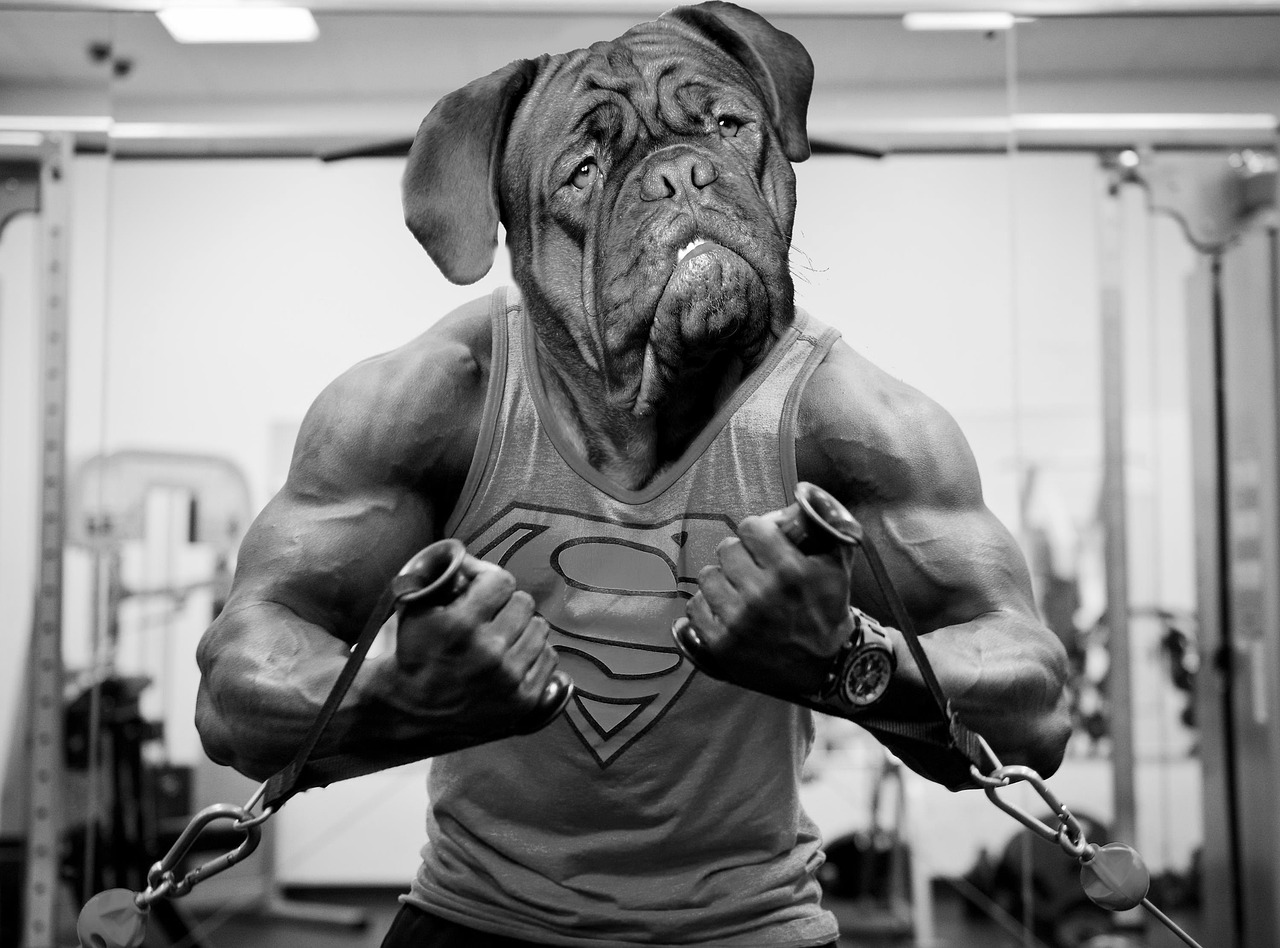
Care and Maintenance
Caring for a Neapolitan Mastiff is not just a task; it's a commitment that requires time, effort, and a whole lot of love. These gentle giants, with their impressive size and unique characteristics, need a well-rounded care routine that addresses their physical, emotional, and health needs. Understanding how to properly maintain this breed can help ensure they live a long and happy life.
First and foremost, grooming plays a crucial role in the overall health of a Neapolitan Mastiff. Despite their short coat, they are known to shed, especially during seasonal changes. Regular brushing is essential not only to manage shedding but also to keep their skin healthy. A good grooming session can help you spot any skin issues early on, ensuring that your furry friend remains comfortable. Aim for at least once a week with a slicker brush or rubber grooming mitt. Don't forget to check their folds and wrinkles; these areas can trap moisture and debris, leading to potential skin infections.
Next up, let’s talk about exercise. You might think that because they are large dogs, Neapolitan Mastiffs need extensive exercise, but that’s not entirely the case. They have moderate exercise requirements, which means they enjoy their daily walks but don’t need to run marathons! A couple of short walks each day, along with some playtime in a secure yard, will keep them physically fit. Remember, overexertion can lead to health issues, so keep an eye on their energy levels and adjust accordingly.
Feeding your Neapolitan Mastiff is another essential aspect of their care. Due to their size, they require a diet that is rich in nutrients to support their muscular build. Look for high-quality dog food that lists meat as the first ingredient and has a balanced mix of proteins, fats, and carbohydrates. Be mindful of their portion sizes, as these dogs can be prone to obesity. It’s advisable to divide their daily food intake into two meals to prevent bloat, a serious condition that can affect deep-chested breeds like the Mastiff.
To further enhance their quality of life, regular veterinary check-ups are vital. Neapolitan Mastiffs are prone to certain health issues, including hip dysplasia, heart problems, and skin conditions. Routine vet visits will help catch any potential issues early on. Additionally, keeping up with vaccinations, flea and tick prevention, and dental care will ensure your Mastiff stays in tip-top shape.
Finally, let’s not overlook the importance of mental stimulation. Neapolitan Mastiffs are intelligent dogs that thrive on interaction and engagement. Incorporating puzzle toys, obedience training, and even simple games can help keep their minds sharp. A mentally stimulated dog is a happy dog, and it can prevent undesirable behaviors that arise from boredom.
- How often should I groom my Neapolitan Mastiff? Aim for at least once a week, but more frequent grooming may be necessary during shedding seasons.
- What type of diet is best for a Neapolitan Mastiff? Look for high-quality dog food with meat as the first ingredient, and ensure it meets their nutritional needs.
- How much exercise does a Neapolitan Mastiff need? They require moderate exercise, such as daily walks and playtime, but avoid overexertion.
- What health issues are common in Neapolitan Mastiffs? They can be prone to hip dysplasia, heart problems, and skin conditions, so regular vet check-ups are important.
Exercise Requirements
The Neapolitan Mastiff, despite its imposing size and muscular build, has moderate exercise needs that can sometimes surprise potential owners. You might think that such a large breed requires extensive daily workouts, but the truth is, they are more about quality than quantity when it comes to exercise. A daily routine that includes a couple of short walks and some playtime in a secure area can suffice to keep your Neapolitan Mastiff happy and healthy. Just imagine a gentle giant lounging around your living room, enjoying a good scratch behind the ears after a leisurely stroll. Sounds perfect, right?
However, it's crucial to remember that these dogs are not couch potatoes. They do need regular activity to maintain their weight and muscle tone, which can prevent health issues down the line. Think of exercise as a way to keep their spirits high and their bodies fit. A simple routine might include:
- Two daily walks of about 20-30 minutes each.
- Playtime in the backyard, which could involve fetch or tug-of-war.
- Short sessions of obedience training that incorporate physical activity.
It's essential to monitor your Neapolitan Mastiff during exercise. Their heavy build can put stress on their joints, so overexertion, especially in hot weather, should be avoided. Always provide fresh water and allow for breaks during playtime. This breed is known for its loyalty and protective nature, so they might want to stay close to you during outdoor activities, which is both heartwarming and a reminder of their strong bond with their human companions.
As your Neapolitan Mastiff ages, their exercise needs will change. Older dogs may not have the same stamina as they did in their youth, and it’s essential to adapt their routine accordingly. Gentle walks and low-impact activities become more important to ensure they remain comfortable and healthy. Always consult with your veterinarian to tailor an exercise plan that suits your dog’s age, health status, and energy levels.
In conclusion, while the Neapolitan Mastiff may not require extensive exercise, regular activity is vital for their overall well-being. By incorporating enjoyable and moderate exercise into their daily routine, you can help your furry friend lead a happy and healthy life. So grab that leash, head outside, and enjoy the companionship of your magnificent Neapolitan Mastiff!
Q: How much exercise does a Neapolitan Mastiff need daily?
A: Generally, they need about 40-60 minutes of moderate exercise per day, split into shorter walks and play sessions.
Q: Can Neapolitan Mastiffs live in apartments?
A: Yes, they can adapt to apartment living as long as they receive regular exercise and mental stimulation.
Q: Are Neapolitan Mastiffs good with children?
A: Yes, they are known to be gentle and protective of children, making them great family pets when properly socialized.
Q: What should I avoid when exercising my Neapolitan Mastiff?
A: Avoid strenuous activities in extreme temperatures and be mindful of their joint health to prevent injuries.
Grooming Tips
Grooming a Neapolitan Mastiff is not just about keeping them looking good; it's essential for their overall health and well-being. With their distinctive loose skin and short coat, these magnificent dogs require a specific grooming routine to maintain their skin and coat quality. One of the most important aspects of grooming your Neapolitan Mastiff is regular brushing. Even though they have short hair, they can shed quite a bit, especially during seasonal changes. A good brushing session a couple of times a week will help remove loose hair and reduce shedding around your home.
When it comes to bathing, less is often more. Overbathing can strip their skin of natural oils, leading to dryness and irritation. Aim for a bath every couple of months or as needed, particularly if your dog gets into something messy. Use a gentle dog shampoo that is free of harsh chemicals. After bathing, make sure to thoroughly dry your Mastiff, especially in the folds of their skin, to prevent moisture buildup which can lead to skin infections.
Paying attention to their ears is also crucial. Regularly check and clean their ears to prevent wax buildup and infections. A cotton ball dampened with a vet-recommended ear cleaner can work wonders. Additionally, their nails should be trimmed regularly. If you can hear their nails clicking on the floor, it’s time for a trim. Not only does this prevent discomfort for your dog, but it also helps avoid potential injury to your furniture and flooring.
Lastly, don’t forget about dental care! Just like humans, dogs need regular dental hygiene to prevent gum disease and bad breath. Consider incorporating tooth brushing into your dog’s grooming routine a few times a week. Use dog-specific toothpaste and a soft-bristled toothbrush to keep their pearly whites in top shape.
In summary, here are some key grooming tips for your Neapolitan Mastiff:
- Brush regularly: A couple of times a week to reduce shedding.
- Limit baths: Every couple of months to maintain natural oils.
- Check ears: Clean regularly to prevent infections.
- Trim nails: Regularly to avoid discomfort.
- Maintain dental hygiene: Brush teeth a few times a week.
By following these grooming tips, you can ensure that your Neapolitan Mastiff remains not only beautiful but also healthy and happy. Remember, grooming is not just a chore; it's a bonding experience that can strengthen your relationship with your furry friend.
1. How often should I groom my Neapolitan Mastiff?
You should brush your Mastiff a couple of times a week and bathe them every couple of months, or as needed.
2. Can I use human shampoo on my dog?
No, it’s best to use a dog-specific shampoo that is gentle and free of harsh chemicals.
3. How do I clean my dog's ears?
Use a cotton ball dampened with a vet-recommended ear cleaner, and gently wipe the inside of the ear.
4. Do Neapolitan Mastiffs require a lot of exercise?
While they are large dogs, they have moderate exercise needs and enjoy regular walks and playtime.
5. What is the best way to trim my dog's nails?
You can use a dog nail clipper or grinder. If you're unsure, consult your vet or a professional groomer for guidance.
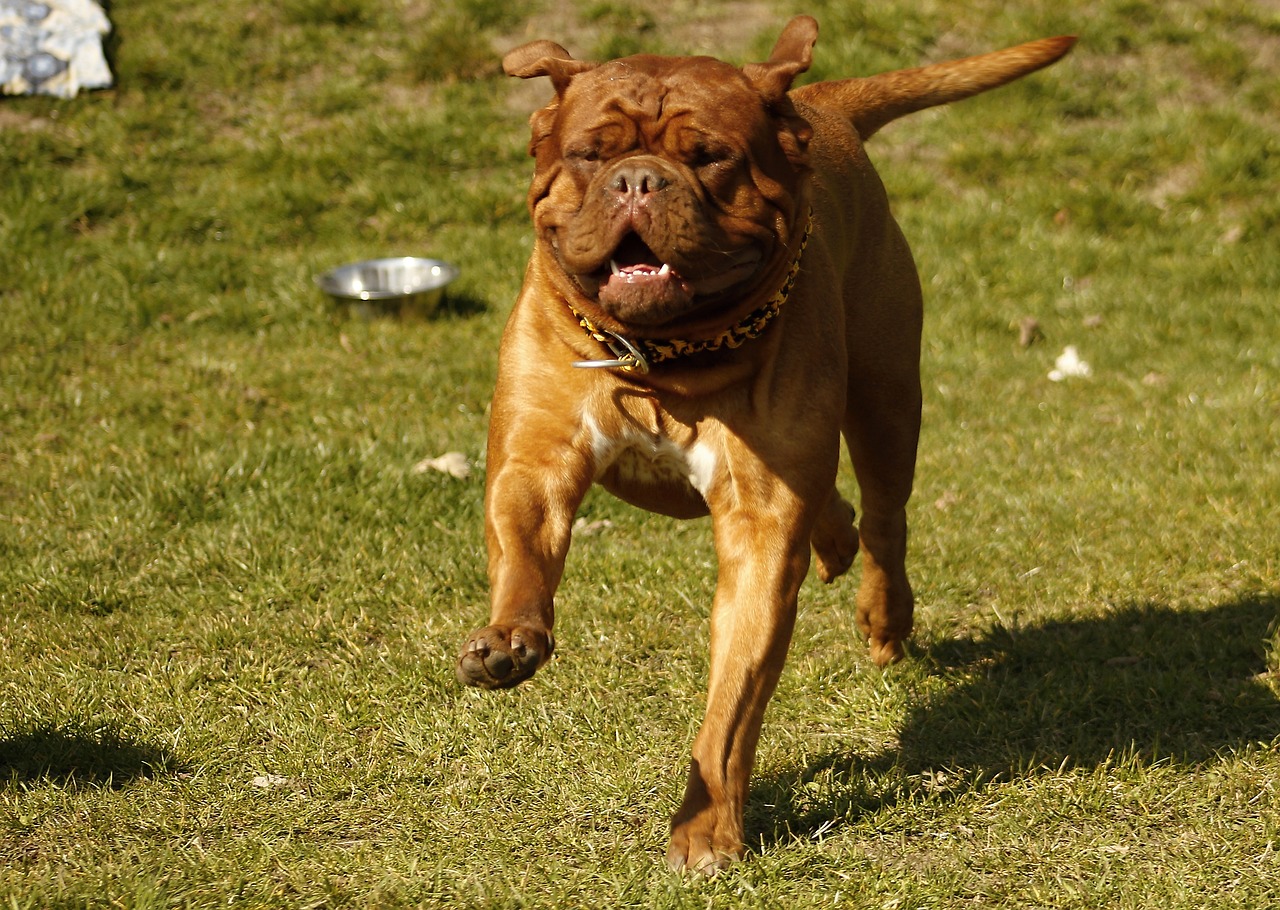
Suitability as a Family Pet
The Neapolitan Mastiff, with its gentle giant persona, can truly be a remarkable addition to any family. These dogs are not just about their imposing size; they possess a heart as big as their stature. This breed is known for its affectionate nature and can form deep bonds with family members, making them exceptional companions. But is a Neapolitan Mastiff the right fit for your household? Let’s explore what makes them suitable as family pets.
One of the most appealing aspects of the Neapolitan Mastiff is their protective instinct. These dogs are natural guardians, often taking on the role of protector for their families. They are known to be quite vigilant, which means they will keep an eye on your home and loved ones. This protective nature doesn’t translate to aggression; rather, it's a loving vigilance that ensures safety. However, it’s essential for owners to socialize them properly to avoid any misunderstandings with strangers.
Another significant point to consider is their interaction with children. Neapolitan Mastiffs are typically gentle and patient, making them great companions for kids. They have a playful side, and their large, soft bodies make them excellent playmates. However, supervision is key when they are around children, especially younger ones, due to their size. Teaching children how to interact with these dogs respectfully can foster a positive relationship. Here are a few tips:
- Always supervise playtime between the dog and young children.
- Teach children to approach the dog calmly and gently.
- Encourage children to respect the dog's space and not disturb them while eating or resting.
Moreover, the Neapolitan Mastiff thrives in a loving and stable environment. They are known to be quite loyal to their families and often seek out affection. This breed enjoys being part of family activities and will happily join you on the couch for a movie night or accompany you on leisurely walks. Their calm demeanor makes them suitable for various living situations, whether you live in a house with a yard or an apartment, provided they receive adequate exercise and mental stimulation.
However, potential owners should be aware of the commitment required in caring for a Neapolitan Mastiff. They are not a breed that can be left alone for long periods. These dogs thrive on companionship and may become anxious or destructive if left alone too frequently. Thus, families with a busy lifestyle must consider whether they can dedicate the time and attention this breed needs.
In conclusion, the Neapolitan Mastiff can be an excellent family pet for those who are prepared for the responsibility. Their affectionate nature, protective instincts, and compatibility with children make them a wonderful choice for families. However, understanding their needs and ensuring they receive proper training and socialization will play a crucial role in their integration into family life. If you’re ready to welcome a loyal companion into your home, the Neapolitan Mastiff might just be the perfect fit.
- Are Neapolitan Mastiffs good with other pets? Yes, with proper socialization, they can coexist well with other pets in the household.
- How much exercise do they need? They require moderate exercise, such as daily walks and playtime, but be cautious not to overexert them.
- Do they shed a lot? Yes, they do shed, so regular grooming is essential to manage their coat and skin health.
- Are they easy to train? They can be stubborn, so consistent and positive reinforcement training methods work best.
Frequently Asked Questions
- What are the key physical characteristics of a Neapolitan Mastiff?
The Neapolitan Mastiff is truly a sight to behold! With its impressive size, large head, and distinctive loose skin, this breed stands out in any crowd. Their muscular build adds to their imposing presence, making them one of the most recognizable breeds around. If you're looking for a dog that commands attention, this is it!
- How does the Neapolitan Mastiff behave with children?
When it comes to family life, the Neapolitan Mastiff can be a gentle giant. They are known for their protective nature and can be incredibly loyal to their families. With proper socialization, they can interact well with children, making them great companions. It's important to supervise interactions to ensure a safe environment for both kids and the dog.
- What are common health issues associated with Neapolitan Mastiffs?
Like many breeds, Neapolitan Mastiffs can be prone to certain health conditions. Some common issues include hip dysplasia, skin problems, and heart conditions. Regular veterinary check-ups and being observant of your dog's behavior can help catch any potential health problems early. Keeping an eye on their weight and overall activity is also crucial for their well-being.
- What kind of exercise do Neapolitan Mastiffs require?
Despite their large size, Neapolitan Mastiffs have moderate exercise needs. They enjoy daily walks and playtime but should not be overexerted, especially in hot weather. A good rule of thumb is to engage them in activities that stimulate their mind and body without pushing them too hard. Remember, a happy Mastiff is a well-exercised Mastiff!
- How should I groom a Neapolitan Mastiff?
Grooming is essential for the Neapolitan Mastiff, especially to maintain their skin health. Regular brushing will help manage shedding and keep their coat looking its best. Additionally, paying attention to their facial wrinkles is important; they should be cleaned regularly to prevent any skin issues. A little grooming goes a long way in keeping your Mastiff healthy and happy!
- Are Neapolitan Mastiffs suitable for apartment living?
While Neapolitan Mastiffs are large dogs, they can adapt to apartment living if their exercise needs are met. They are generally calm indoors and enjoy lounging around. However, it's essential to provide them with enough space to move comfortably and to schedule regular outdoor activities. A dedicated owner can make apartment living work for this breed!




